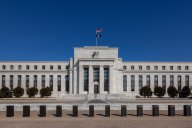
Trading Nasdaq 100’s fresh record high
Progress on the trade front, easing geopolitical tensions, and ‘revenge tax’ removed sees risk appetite improve.
11:02, 30 June 2025

Capital.com expands industry engagement as it joins Innovate Finance and the London Chamber of Commerce and Industry
Memberships signify commitment to actively participate in the development and transformation of the UK’s financial and technology sectors.
09:11, 30 June 2025

Capital.com enhances EU Client protection with up to 1 million euro insurance cover
Capital.com announced the launch of a new enhanced insurance scheme specifically for clients across the European Union (EU).
09:13, 26 June 2025

Buffett’s cash pile just got even larger
Warren Buffett just announced he's stepping down as CEO of Berkshire Hathaway – and he's leaving his successor a massive pile of cash. Since 2024, Buffett has sold off a massive amount of stock, more than doubling Berkshire's cash position from $167bn to $348bn.
18:05, 25 June 2025

Why the Federal Reserve is ignoring a major economic warning
Economic uncertainty is at an all-time high. It’s higher today than during the pandemic in 2020—and several times higher than during the Great Recession in 2008.
17:01, 25 June 2025

Oil price forecast 2025-2030: Third-party price target
Discover third-party oil price predictions for 2025 and beyond, with analyst targets, historical prices, and trading strategies.
16:03, 25 June 2025

Solana price prediction: Third-party price target
Explore the latest Solana (SOL) forecast for 2025 and beyond, with analyst insights and long-term price predictions.
15:26, 25 June 2025

Gold price forecast 2025: Third-party targets
Gold has long been considered a safe-haven asset in times of economic uncertainty, and with 2025 already marked by central bank pivots, shifting inflation pressures, and geopolitical tension, the metal remains high-profile in trading circles.
18:09, 23 June 2025

eToro stock forecast: Key insights after Nasdaq debut
Discover eToro stock predictions for 2025 and beyond, with insights from third-party analysts and market experts.
16:04, 18 June 2025

Berkshire Hathaway top holdings: Warren Buffett’s 2025 portfolio
Discover Berkshire Hathaway top shareholdings in 2025, with recent movements, and how to trade Berkshire shares via CFDs
14:51, 12 June 2025
